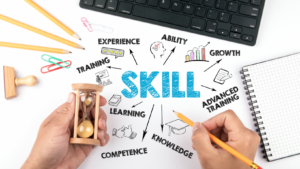In an increasingly interconnected world, the concept of global citizenship is gaining momentum. It’s more than just a buzzword; it’s a framework for understanding our roles, rights, and responsibilities within the global community.
Stay tuned to explore the importance of global citizenship skills and how they can be developed.
Global Citizenship Skills
Definition and Importance
Global citizenship skills serve as vital tools in an increasingly interconnected world. These skills encompass the understanding and temperament allowing individuals to navigate complex, diverse environments. Priming a person with the ability to consider multiple perspectives, they facilitate constructive interactions on a global stage. In essence, global citizenship skills encapsulate empathy, critical thinking, cultural awareness, and communication effectiveness.

The importance of global citizenship skills springs from their role in addressing and solving global challenges. For example, working towards international sustainability goals demands a broadened perspective, one informed by the multiple realities present around the globe. Moreover, the mastery of these skills fosters a sense of responsibility and active engagement in global affairs. It cultivates individuals who are knowledgeable about worldwide issues and committed to making a difference.
Key Components of Global Citizenship
Recognizing the spectrum of global citizenship skills involves the identification of its key components. Contrary to the perception of being a singular skill, it comprises multiple facets.

- Cultural Awareness: This skill cultivates comprehension and respect for various world cultures. It’s instrumental in creating a tolerant, inclusive society that values diversity. For instance, understanding the significance of Ramadan in Islamic culture is an example of cultural awareness.
- Critical Thinking: This refers to the ability to reason, analyse, and make decisions based on facts and logic rather than biases or prejudices. For example, interpreting the implications of global warming critically can prompt actions towards sustainability.
- Empathy: Empathy involves understanding and sharing the feelings or plight of others. It is the cornerstone of forming meaningful, respectful relationships with people from different backgrounds. An empathetic person might acknowledge and be sensitive to the struggles of refugees, for instance.
- Effective Communication: This equips individuals with the capability to express ideas clearly and comprehend others’ perspectives effectively. It’s essential in establishing successful interactions at a global level, for example, in international business negotiations.
Each of these components not only stands independently valuable but also interlinks to form the comprehensive nature of global citizenship skills. Understanding these components can provide insight into how individuals can perform their roles as global citizens more effectively.
How Global Citizenship Skills Impact Society
Global citizenship skills exhibit significant effects on society, encompassing areas such as inclusivity, understanding, and economic cooperation, among others. Upholding these skills can facilitate a drive towards a more unified, empathetic, and collaborative global society.

Global citizenship skills enable the breeding of inclusivity and understanding in a diversified societal setup. A prime example, cultural awareness inculcates in individuals the ability to appreciate varied cultural backgrounds, enhancing inclusivity. The skill of empathy allows individuals to introspect and understand perspectives different from their own, nurturing societal understanding. Teaching and practicing these skills, hence, nurture an inclusive society where differences are honored and valued, fostering understanding among diverse groups.
Must Know
Global citizenship skills aren’t just important, they’re essential in our interconnected world. They’re the tools that help us understand and embrace diversity, fostering a sense of unity and shared responsibility. Yet, it’s clear there are significant hurdles to overcome. Nationalism, socioeconomic disparities, educational gaps, and language barriers are just some of the challenges we face. It’s a complex issue, but it’s one that can’t be ignored. We must strive to break down these barriers, to ensure everyone has the opportunity to develop these vital skills. By doing so, we can work towards a world where understanding, empathy, and effective communication are the norm, not the exception. It’s a lofty goal, but one worth striving for. After all, we’re not just citizens of our own countries, we’re citizens of the world.
